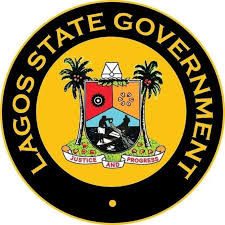The Lagos State Government has unveiled a new digital house-numbering system under the “Lagos Identity Project,” aimed at enhancing property identification and improving service delivery across the state.
The project was officially launched on Tuesday in Alausa, where Dr. Olajide Babajide, Special Adviser to Governor Babajide Sanwo-Olu on Enterprise Geographic Information System, described the initiative as a critical step toward modernizing urban governance in Africa’s largest city.
According to Babajide, the system introduces digital plates embedded with QR codes and local government-specific colour codes. These features will allow quick access to vital property information and are expected to transform postal services, emergency response, tax administration, and urban planning in Lagos.
“This initiative is about offering Lagosians the kind of responsive, technology-driven governance they deserve,” Babajide said, noting that the move also targets issues like rental fraud and untraceable property addresses.

He emphasized that scanning the digital code on a building will allow authorized users to retrieve property details, improving transparency for both residents and officials. The plates are also designed to help emergency services locate properties faster, potentially saving lives during critical situations.
The digital infrastructure was developed in partnership with Interspatial, a tech firm that carried out aerial mapping of the entire state over the past two years. Babajide explained that the system conforms to international data protection and identification standards, making Lagos a model for other cities in Africa.
“This is more than just house numbering. It’s a strategic legacy initiative that matches global smart-city benchmarks,” he said.
The pilot phase of the project is currently underway in the Eti-Osa Local Government Area and will be rolled out to all 57 Local Government and Local Council Development Areas (LCDAs) following its initial implementation.
Babajide noted that the exercise is being carried out by trained local youth under the “Ibile” program, which ensures community participation and accurate data collection.
Backing the project, technical partner and co-sponsor Mr. Yinka Adesiyan highlighted the benefits of the system for utility workers, first responders, and residents, saying it would reduce inefficiencies and improve service coordination across the state.
“The digital plates will make Lagos easier to navigate, safer to live in, and more secure. It’s a vital tool for future planning,” Adesiyan stated.
He also disclosed that the platform includes Know Your Customer (KYC) features, strengthening the city’s capacity for security monitoring and infrastructure development.
Officials say the government’s investment in the initiative reflects a long-term commitment to making Lagos a truly smart and globally competitive city.




